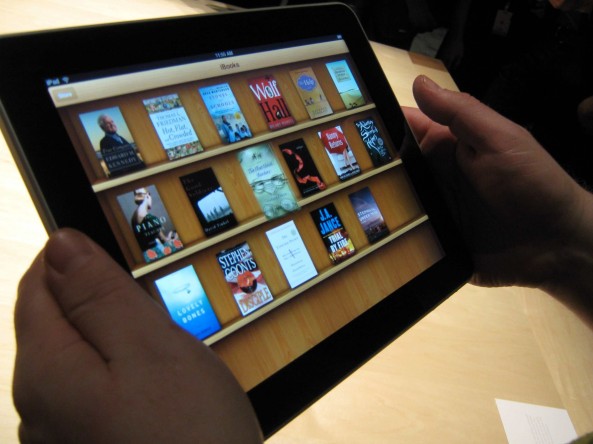The US Department of Justice says it has received nearly 1000 public comments since it lodged its lawsuit against Apple and a number of major book publishers earlier this year. The suit claims that Apple worked in concert with the publishers in an effort to raise e-book prices.
The DoJ has responded to the comments today, and has strong words for both Apple and the accused publishers. Despite the pushback, the Department says that it has every intention to move forward with its e-book lawsuits and settlement talks as planned…
PaidContent reports:
“The Justice Department released a document today that characterized criticism by Apple and publishers of a controversial price-fixing settlement as “self-serving” and ill-founded. The Department also pointed to recent ventures by Google and Microsoft as evidence the the e-book market is thriving and that Amazon’s dominant position has been overstated. “
Apple has maintained that its “agency model,” which allows publishers to set their e-book prices as high as $14.99 as long as it isn’t offered cheaper anywhere else, is helping push competition in an industry dominated by Amazon. But obviously, judging by the DoJ’s statement, they’re not buying it.
“Nothing in the proposed Final Judgement would force Apple or B&N [Barnes & Noble] to exercise discounting authority—they are free to carry out their own businesses exactly as before. What they may not do is continue to rely on a conspiracy to restrain their competitors.”
This essentially translates into “you can sell your e-books for whatever you want, but you can’t force publishers to raise their prices on other platforms,” which is exactly what is happening. Amazon saw many of its $9.99 e-books jump to over $12 in wake of Apple’s entrance into the space back in 2010.
The lawsuit is slated to begin on June 3rd of next year, and so far, three of the five accused book publishers have decided to settle with the DoJ for an undisclosed amount. If Apple loses the case, it could be forced to pay one of the largest court-ordered settlements in company history.
What’s your take on this whole mess? Is Apple in the wrong here?
